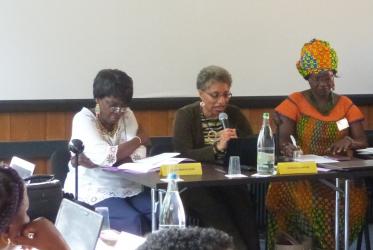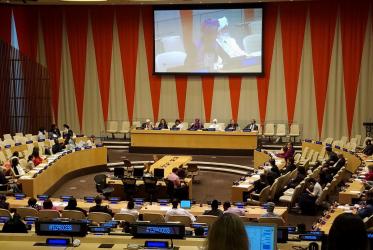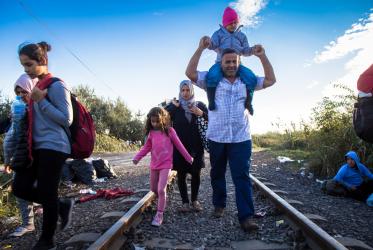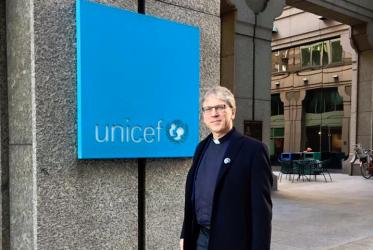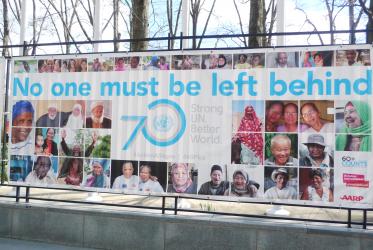Displaying 81 - 100 of 124
"We have our work cut out for us"
10 August 2017
"Church has huge responsibility empowering women"
26 July 2017
Colombia peace accord brings both joy and concern
19 August 2016
New Executive Committee members elected in Trondheim
28 June 2016
International affairs facilitator reflects on pilgrimage
31 March 2016
Symposium focuses on religion, violence, extremism
04 February 2016

